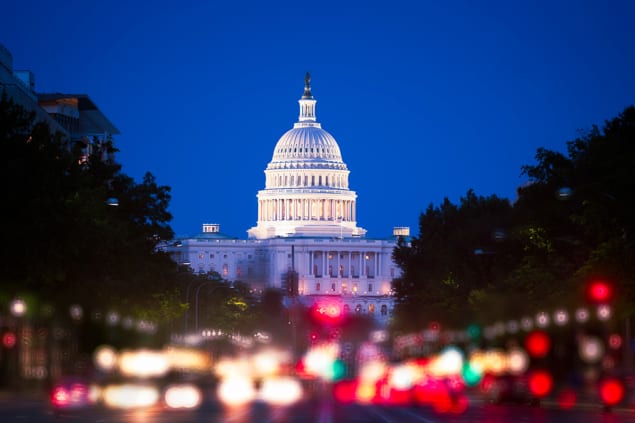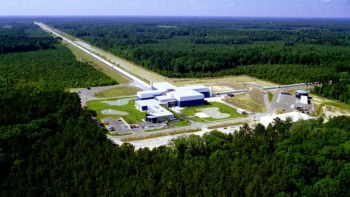
A group of 60 US scientific societies, including eight physics-related organizations, have joined forces to say that the American government’s efforts to strengthen national and economic security is endangering scientific research. In a letter sent last week to US presidential science adviser Kelvin Droegemeier and science-related government agencies, the societies say that policies intended to reduce security risks will end up harming science. The letter calls on the recipients to ensure that the US “remains a desirable and welcoming destination for researchers” as the government develops its policies.
Coordinated by the American Association for the Advancement of Science, the letter follows reports that the FBI and other security agencies have investigated scientists suspected of working — directly or indirectly — for overseas governments, especially China. Some US university science departments have already sacked Chinese nationals, while Americans of Chinese origin have come under suspicion of spying for China. In June, the US Department of Energy (DOE) also said it would ban scientists from taking part in recruitment programmes sponsored by foreign governments, such as China’s 1000 Talents initiative. The clampdown extends to individuals working for the DOE’s contractors, meaning that around 100 000 individuals are affected.
[Government agencies have offered] compelling anecdotal evidence of [espionage] cases that have impacted industry, classified research, and applied research
American Physical Society statement
“We were aware from discussions with our member societies and broader dialogue with scientific societies that the [security policies are] a matter of concern,” says Michael Moloney, chief executive of the American Institute of Physics, which was among the societies that signed the letter. “It’s also reflected in statements by presidents of some of the leading research universities.” Moloney believes, however, that the US government does recognize the issues expressed in the letter. “The leaders of federal agencies that I personally have spoken with are very cognizant of the concerns of the scientific community and of the need for broad consultation with stakeholders,” he adds. US energy department cracks down on foreign recruitment programmes
The American Physical Society, which is also a signatory, concedes in a separate statement that government agencies have offered “compelling anecdotal evidence of [espionage] cases that have impacted industry, classified research, and applied research.” However, the society’s statement continues, it will “continue to make the case that security concerns must be balanced against the value of keeping the scientific enterprise open and collaborative”.



